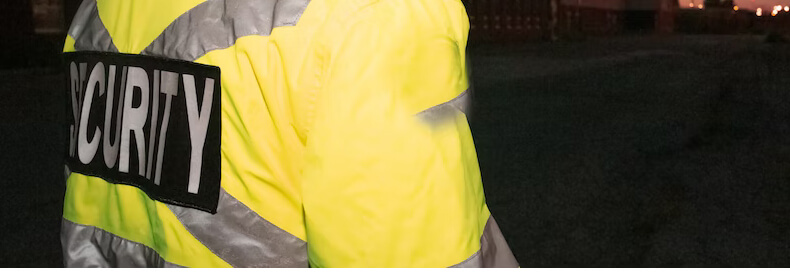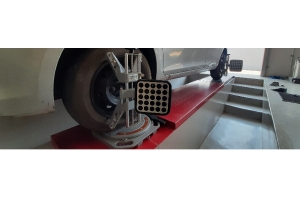We use cookies to make your experience better.
To comply with the new e-Privacy directive, you agree to the privacy policy and our use of cookies.
Community Policing - The Creative Tool in Fighting Crime

Community Policing is not necessarily a new concept but one that is critical at this point in our communities' growth and the obvious changing crime dynamics that our communities continue to experience. The recent public outcry regarding corruption within the police force makes it absolutely imperative that effective community policing initiatives be implemented across communities in Zimbabwe and indeed across other countries in Africa to ensure that we strengthen the bond and improve communication between the Police, other law enforcement agencies and the communities they serve. This article will focus on Zimbabwe but the processes and tools can be adapted for other African countries. The current public perception of rampant corruption is unfair to the large number of honest and dedicated ZRP officers who respect the rule of law and the people they serve and protect just as it would be unfair to label an entire community, thieves, based on a few thieves that live in the community. It goes without saying that a successful community policing initiative would benefit both the public and the ZRP...
The scores of public frustration as a result of the disconnect between the ZRP and the communities has not gone unnoticed. It's commendable that the ZRP has taken a proactive approach to initiate Community Policing with neighborhoods like Borrowdale and Avondale among others seeing a rise in public buy-in to Community Policing primarily through Neighborhood Watch initiatives. This community-oriented approach that the Police is marketing aggressively through various campaigns is sure to mend the relationships and it's that restored trust that will be a major ingredient in fighting crime in our communities. As a resident that is seeing the benefits of this approach, I urge you to get involved and play your role in fighting crime in your community.
For this Community Policing program to truly be successful, it's important for the public to also extend a helping hand; there are many ways companies, organizations and members of the community can contribute to the success of this Community Policing Program. The first way you can help is to be open to the idea that this can work and help in reducing crime in our communities. Building the relationships between ZRP and the communities they serve will give the police better insight into the people ZRP serves and the pressing crime-related issues. Better relations will also mean that the public has easier access to Constables, Sargents, Assistant Inspectors and Chief Inspectors that may seemingly be out of reach for some members of the community. The Borrowdale police, for example, has already created departments that are the point of contact for the public, making it easier for the communities to voice concerns and follow-up on concerns or to share information with the police that could lead to solving open cases or better yet preventing crime before it happens. Anyone can approach their nearest Police station to get specific details for the area.
The Borrowdale Crime Liaison Committee made up of ZRP police officers and neighborhood watch officers is already seeing much progress in the collaborative efforts afforded by Community Policing. When the community works with the police force to help solve crime there is an increased level of creativity and resource availability in combating crime. That said, as I noted above... it's critical that the community continue to lend a hand whenever possible and offer resources that may help to make our communities safer. The Borrowdale Crime Liaison Committee is appealing to businesses, organizations and members of the community to come through and offer any assistance and more importantly join in this truly progressive way of policing and fighting crime.
importantly join in this truly progressive way of policing and fighting crime.
Some examples of things you can do to help grow this Community Policing initiative include something as simple as volunteering to walk at-risk residents home after dark, joining the Neighborhood Watch program, offering a vehicle for use by the neighborhood team, donating equipment that can include flashlights, learning about current programs and spreading the word to other members of the community... There are many ways to help, just reach out to your station to find out how. Perhaps the first and most important part residents must play is attending Crime Awareness Campaign meetings that may be taking place in your community; this is the first step in building a relationship with officers policing your specific area.
The Borrowdale Police Crime Liaison Committee has a Facebook page here: www.facebook.com/zrpborrowdaleclc or you can use this handler @zrpborrowdaleclc from within Facebook.Together with the ZRP and members of the community, including organizations and individuals,we can create a better, safer and friendly community to live in with much lower levels of crime. Remember, the goal is to stop the crime before it happens... If you share a concern for the welfare of the neighborhood then you must work closely with the police through the Community Policing initiative. Play your role today!
Summary of the Steps To Setup a Successful Police-Facilitated Neighborhood Watch Program:
- Meet as residents and find out if you have any Crime Liaison Committee members in your community that can facilitate communication with the police. If you don't have any such members, select two to three representatives that will go and speak to the police about your intention to create a police-facilitated neighborhood watch program.
- Your CLC members or representatives will approach the Community Relations Liaison Office (CRLO) and request for the police to come and speak to your community about Community Policing
- The Police will bring a team on an agreed-on date and speak to the community about the Community Policing Program and equip the community on how the program works and the different roles members of the community can play to ensure a successful Community Policing Program.
- After the information from the police, your community should set up your Neighborhood Watch Committee (NWC) structures. If you already have CLC Members in your community, they will form your community leadership Chairperson, Vice Chair, etc and any unfilled positions can be filled by any other members of the community.
- In the same meeting, select volunteers that will patrol the streets as part of the Neighborhood Watch Committee members. These must be members with clean records as their names and fingerprints must go for vetting at your local police station. Some fees may be involved in this process; please check with your local police station.
- The vetted and approved members will need to undergo training on the basics of patrolling to ensure that the NWC operations are always within the confines of the law.
- Once you have your complete Neighborhood Watch Committee setup, it's time to work on the patroling schedule. Ideally, men patrol at night while women patrol during the day. You can do what best suits your community and ensures the safety of those patrolling and the members you are serving. Note that some communities prefer to higher professional guards or security companies to patrol at night with the administration of the guards conducted by the NWC leadership. The approach you select will largely depend on your community members' availability and ability to pay for guards.
- Agree on monthly meetings to discuss the progress of your NWC as a community. You can also arrange for the police to attend your meetings on a quarterly basis to ensure that both parties stay in touch and work towards aligned crime-fighting goals.
- Your community should also ensure appropriate attire for all those vetted and approved to patrol, for easy identification. In addition, you can also have your NWC Identity Cards for further identification with others as and when necessary.
- Always ensure that your NWC with the assistance of CLC members runs all operations by the CRLO office to ensure safety for all those involved and to ensure that all operations are conducted within the confines of the law.
Now that you have read this article, what are your thoughts...? Did we forget any important points? Share in the comments section below.




